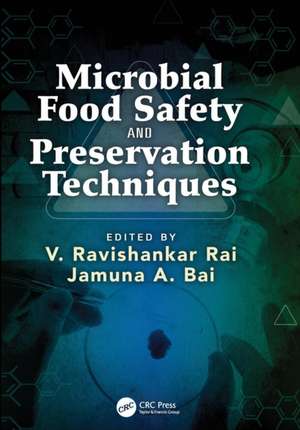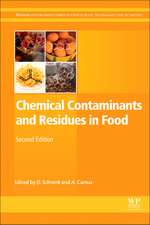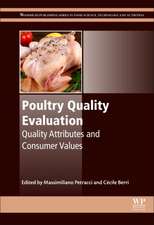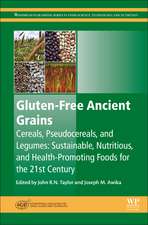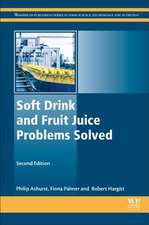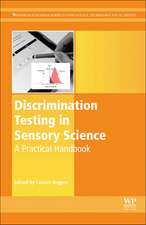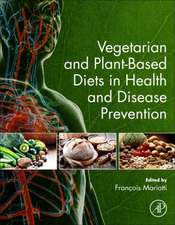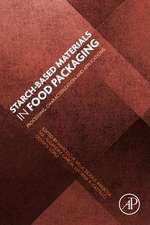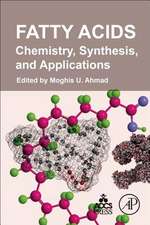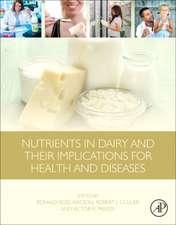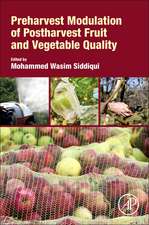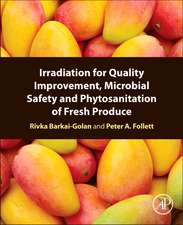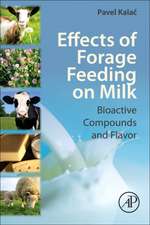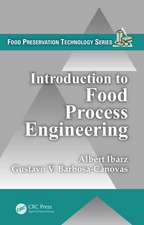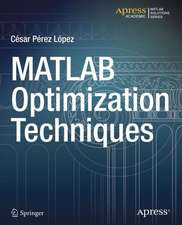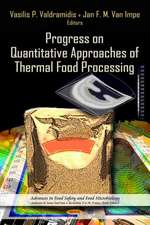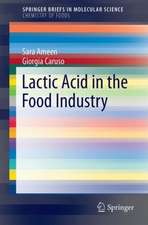Microbial Food Safety and Preservation Techniques
Editat de V Ravishankar Rai, Jamuna A. Baien Limba Engleză Paperback – 19 oct 2016
The book elucidates the hazards caused by food-borne pathogens and assesses the microbiological risk of raw, fresh produce, ready-to-eat (RTE), minimally processed, and processed foods. It then discusses the detection of pathogens using advanced molecular techniques, biosensors, and nanotechnology. The topics covered include smart/intelligent and active packaging techniques, hurdle technology, plasma technology, nanotechnology, use of natural flora belonging to lactic acid bacteria, and antimicrobials such as phytochemicals and essential oils, as well as novel food preservatives based on quorum sensing inhibitors. The inclusion of chapters on modeling microbial growth in food enhancing the safety and quality of foods makes the book especially practical.
Examining the advantages and limitations of these new preservation techniques, the book highlights the trends and hot topics that help you face the challenges of food safety. With coverage of food safety issues, including detection, identification, and prevention of food-borne illness disease agents, as well as preservation techniques, the book provides a comprehensive resource for tackling current and future food safety issues.
| Toate formatele și edițiile | Preț | Express |
|---|---|---|
| Paperback (1) | 718.91 lei 6-8 săpt. | |
| CRC Press – 19 oct 2016 | 718.91 lei 6-8 săpt. | |
| Hardback (1) | 1814.34 lei 6-8 săpt. | |
| CRC Press – 26 sep 2014 | 1814.34 lei 6-8 săpt. |
Preț: 718.91 lei
Preț vechi: 876.73 lei
-18% Nou
Puncte Express: 1078
Preț estimativ în valută:
137.63€ • 143.60$ • 115.37£
137.63€ • 143.60$ • 115.37£
Carte tipărită la comandă
Livrare economică 13-27 martie
Preluare comenzi: 021 569.72.76
Specificații
ISBN-13: 9781138033801
ISBN-10: 1138033804
Pagini: 542
Ilustrații: 91
Dimensiuni: 178 x 254 mm
Greutate: 0.98 kg
Ediția:1
Editura: CRC Press
Colecția CRC Press
ISBN-10: 1138033804
Pagini: 542
Ilustrații: 91
Dimensiuni: 178 x 254 mm
Greutate: 0.98 kg
Ediția:1
Editura: CRC Press
Colecția CRC Press
Public țintă
Professional ReferenceCuprins
Section 1. Food safety and hygiene. Microbiology of raw, semiprocessed and processed vegetable and fruit products, meat, poultry and seafoods, dairy products and fermented foods. Emerging and re-emerging infectious food borne diseases. Microbial physiology and pathogenicity of food-borne pathogens –quorum sensing, biofilm formation, infections and toxins. Detection of food borne pathogens using advanced and rapid molecular techniques- culture dependent and independent techniques. Application of nanotechnology and biosensors in pathogen detection and identification. Microbial risk assessment and risk management of various food products and quantitative microbial risk assessment tools. Predictive microbiology and modeling microbial growth in food systems. International and national food safety regulatory agencies, establishing and developing microbiological criteria for food borne pathogens, HACCP development, implementation and impact of regulations and food policies for safety and quality assurance of foods. Section 2. Food preservation. Microbes in food spoilage – Specific spoilage organisms, Mechanisms of food spoilage, Interaction between spoilage organisms, biofilms and biofouling. Modeling microbial growth in food and extension of shelf life of various food products. An overview of intervention technologies in food preservation and their advantages and drawbacks. Biological preservation of foods – bacteriocins, enterocins, food grade enzymes, chitosans, glucans, essential oils, lactic acid bacteria and protective cultures. Emerging intelligent and active packaging techniques, applications and safety concerns. Food preservation by hurdle technology – A combination of ultrasound, irradiation, pulsed electric fields, hyperbaric techniques, thermal and non thermal technologies. Nanotechnology in food preservation and food packaging- application, limitations and future trends. Quorum sensing inhibitors as novel food preservatives-dietary phytochemicals as anti quorum sensing agents.
Descriere
The book explores the advances in food safety and food quality control. It covers the hazards posed by the food-borne pathogens, their detection using advanced molecular techniques and nanotechnology, microbiological risk assessment of raw, fresh produce, ready-to-eat (RTE), minimally processed and processed foods. It includes the role of regulatory agencies and authorities in developing strategies to improve the quality and safety of food. It emphasizes the various food preservative techniques that are used to ensure high quality and safe foods.
